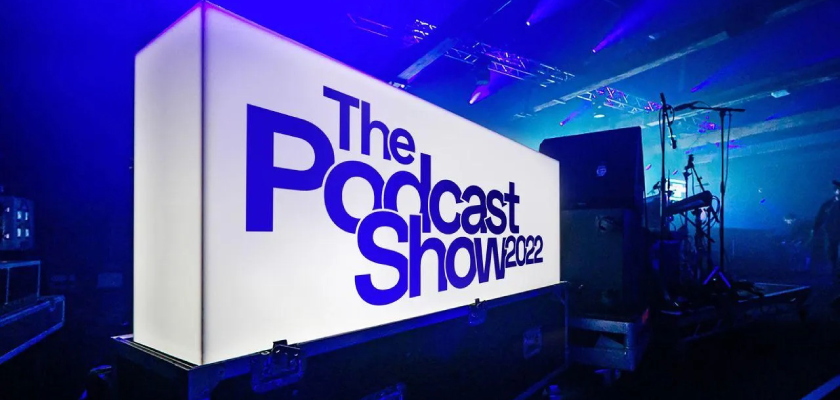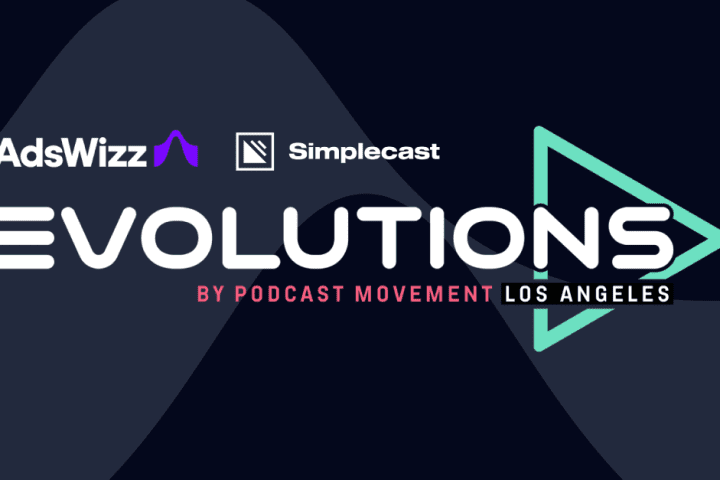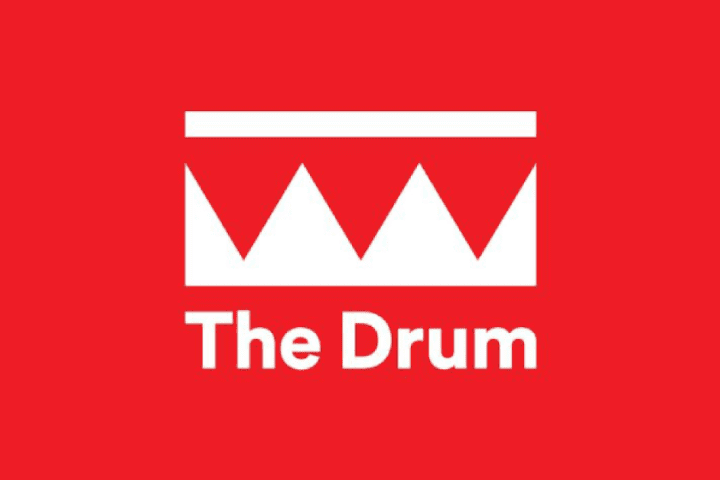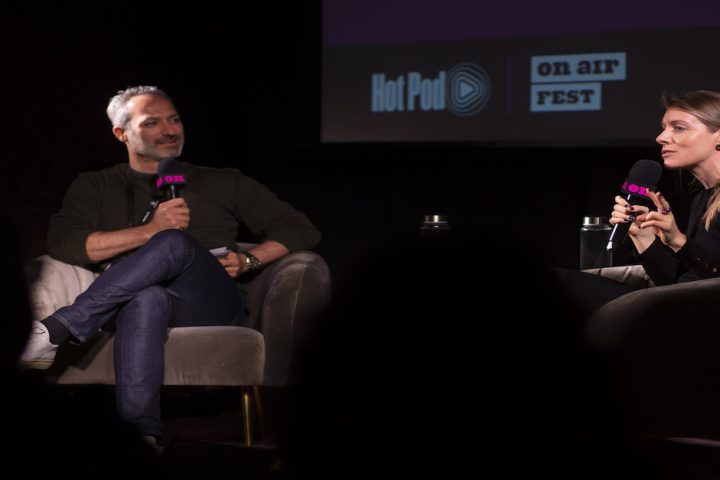AdsWizz & Simplecast
Pump Up the Volume at Podcast Show UK 2022
At this year’s Podcast Show UK 2022 in London, independent podcast creators, established industry professionals, and business leaders came together to motivate, influence, and support critical visions of unprecedented growth and change in the podcast industry. AdsWizz and Simplecast were front and center as the sponsor of the Podbar at this two-day gathering, where we also produced four fireside chats, further establishing us as a leading voice and authority in podcast monetization and creation. Read on for our session overviews, highlights, videos, and more!
Podcast Monetization 101
Caitlin Van Horn, Head of Marketing at Simplecast, and Justine Benjamin, Head of Marketing at AdsWizz give an overview of how brands can monetize their content.
Recap
- While monetization doesn't have to be the end goal, if creators plan to go this route, it is best to have around 10K downloads to monetize (with some notable niche content exceptions).
- There are many ways for creators to monetize, including advertising sponsorships, subscriptions/memberships, and ancillary experiences such as events, games, and books. Content creation requires more time and resources to ensure a consistent and enjoyable audience experience.
- Two commonly used approaches for ad creative: host-read or produced. The hosts produce and promote host-read ads (go figure), with a little-to-no barrier to entry for creators. The benefit is a seamless, native listening experience that builds a high trust factor with the brand and podcast audience. On the other hand, produced ads tend to have a higher production value, especially if assembled by a brand or an agency.
- Baked-in ads consist of host-read and produced ads stitched into the content as one file. Dynamically inserted ads enable technology to determine what kind of ad gets served. Determining factors are based on day, time, listening context, geography, and download frequency. These ads can be re-sold via back catalogs.
- Podcast ads transact in three ways:
- Direct Sales (via a host) - executed through digital documents via the content owner (or accompanying ad ops team). The transaction enables an insertion order that defines the terms and conditions.
- Direct Sales via a Publisher - leverages digital docs incorporating terms and conditions like direct sales. It also includes an Insertion Order (IO) plugged into a campaign management system to ensure the IO executes via automated technology. Sometimes this is monitored by a person.
- Programmatic - negotiation is executed on a digital platform, not a traditional IO, through either private or public marketplaces. Ads can target audiences by many attributes (i.e., age and gender), not just by the shows themselves.
"Back catalogs are incredibly valuable, especially if you produce True Crime or Fiction, because listeners start at the first episode. If you've been podcasting for a long time, it's worthwhile to see what monetization opportunities there are, especially for 'entryway' or popular episodes. You should make sure those ads are fresh and that you are still getting paid for them!"
- Caitlin Van Horn
Decoding Podcast Advertising for Brands
Lou Nylander, influential marketing thought leader and founder of Wildflowers of London, moderates a fireside chat with AdsWizz Business Development Director, the UK and Ireland, Ella Kerr-McCutcheon, and Lucy Barbor, Chief Strategy Officer at PHD UK. They discuss how brands can leverage agile thinking, human capital, data, and technology to engage the rapidly growing podcast listening audience.
Recap
- Brands should take advantage of the disproportionately longer dwell time audiences engage with podcasts, even before they decide to stick with them. Podcasts allow brands more runway than other mediums to communicate their story and vast opportunities to expand the messages they are trying to communicate.
- On measurement - brands and agencies still need education on how their investment tracks back to sales. AdsWizz's Audio Attribution Solution enables advertisers to see which conversions they can attribute to their audio ads. Audio pixels connect to a brand's website at the most impactful conversion areas (such as a shopping cart checkout).
- To achieve success, measurement needs to align with the business objective and a comprehensive strategy. Additionally, brands need to creatively tap into the right communities for their target audiences without being interruptive. It's about deep engagement and understanding of passionate communities that coalesce around particular subjects. For example, suppose you are an auto brand and looking to reach auto enthusiasts or potential buyers. In that case, plenty of podcasts talk about cars, a great environment to find audiences, and are essential from a brand safety perspective.
- Brands and agencies need to champion a more inclusive and diverse pool of creators to enable more exciting narratives and impactful insights to understand further what audiences want from us.
"It's about asking brands what they are trying to achieve. Marketers need to be mindful of the nature of the medium; it's very intimate, and it has to be relevant, not intrusive. It can be a rich experience, but brands need to leverage the available contextual tools to have the most impact to ensure that their ad is in the right environment.
- Ella Kerr-McCutcheon
Moving Up: From Indie Production to Working With IP
Ella Watts, co-creator, Doctor Who: Redacted, and James Robinson, executive producer with BBC Sounds, joins Caitlin Van Horn, Head of Marketing at Simplecast to discuss their transition from independent creator to working with some of the most prominent players in podcasting–as well as advice for anyone looking to do the same.
Recap
- Sometimes, there can be a wall between large enterprise organizations and the indie podcast community. One of Ella's assets to the BBC was her access to the indie podcast community and bridging this gap between these two worlds. On the flip side: when James and Ella got together, James ran RadioDrama 1. Ella and her team leveraged James's experience with the BBC and his success in producing radio dramas to help balance the group with "established" industry experience.
- How one might be able to work in IP and write a Dr. Who audio drama - it helps if you start as a fan! Ella was hired on Dr. Who and other IP projects because of her expertise in audio drama and deep intellectual property (IP) knowledge.
- In 2019, when BBC Sound told Ella that the Dr. Who brand wanted a podcast, they had particular conditions of what that podcast could be. With IP, the screen content must be broadcast first, so the audio version must be adapted and rewritten to align with the primary IP.
- Ella and her team wanted to ensure that one of the main characters was a woman of color that reflected real-world issues and social dynamics.
- The most valuable attributes James admires about independent creators are their passion, fresh ideas, and the speed at which they work.
"Don't make stuff you think people want to hear. Make stuff you want to make!”
- James Robinson
“It is crucial to familiarize oneself with the era of the IP run the brand is currently vested in. Additionally, immerse yourself with the medium and the formats whenever you are working in a storytelling medium. If you want to make an audio drama, listen to audio drama. Familiarize yourself with historical radio and current podcast drama and understand those differences”
- Ella Kerr-McCutcheon
The Innovation Ingredient - How Publishers Can Build Sustainable Advertising Revenue
AdsWizz's Podcast Business Development Director, Ollie Chadwick, joined Acast's Global Head of Automation, Michael Bayston, and Lou Nylander, influential marketing thought leader and founder of Wildflowers of London, to discuss the evolution of podcast advertising and how innovation in AdTech enables podcasters to build sustainable advertising revenue.
Recap
- With so much M&A activity from large organizations, it is validation from the audio industry that many prominent players are investing so heavily in this space. This investment has helped to spur our sector.
- Screen fatigue was prominent for people in countries with lockdowns during Covid. Podcasting was an ideal medium during the few chances each day people ventured outside. It is a 1:1 relationship between the creators and the listeners, which can be an opportunity for advertisers to engage those audiences. Even as lockdowns loosened, growth continued.
- Now, every aspect of the industry is growing: the listeners, the content creators, and the advertisers. This growth is reflected in our recent 2022 Podcast Trends Report:
- SXM Media podcast audience grew 123% in the past year
- 110% increase in podcast shows YoY
- 157% increase in ad spend by impressions in 2021.
- Benefits of programmatic audio - automated ads are delivered at a pre-agreed price and pre-agreed volume using computerized pipes for the transaction between the DSP and the SSP. When Acast started testing programmatic in 2017, they wanted to avoid common mistakes and harmful practices from the traditional programmatic buying system across websites and apps, such as low-quality ads, which follow users everywhere. The programmatic software offered by AdsWizz allowed the Acast sales teams to work faster by automating operational efficiencies with programmatic direct.
- On the challenges in podcast advertising - digital buying into podcasts is different because of the unique challenges with data, which is still a work in progress for the industry. For example, if you don't own the listening platform, there can be little in the way of data authentication. Today's advertisers heavily lean on data but also need to think about data through a different lens (or signal). Targeting should be through more contextual solutions, which goes hand-in-hand with brand safety. Contextual solutions enable brands to target appropriate and avoid inappropriate content, which is a net positive for DSPs and agencies because they are familiar with contextual targeting for brand safety.
"Due to the very nature of podcasting (1:1 relationship between the listener and podcast), it's a much less intrusive experience from an advertising perspective. With podcasting, you're getting served one ad at a time (host-read or sponsorship), but we're seeing increased pre-recorded spot ads delivered, which is not a disruptive listener experience. From a monetization and programmatic perspective, if you think about display advertising, it's based upon high bid density with multiple SSPs (supply-side platforms) plugged in with a header bidder solution. It's more straightforward with podcasting: one publisher has one SSP, with one ad delivered. And it's provided, not through an open auction; it's through PMPs, be that preferred deals, private deals, or increasingly, from the programmatic guarantee."
- Ollie Chadwick
In Conclusion
The Podcast Show 2022 coalesced the most critical players in the podcast space around the most salient trends—from creation and monetization to advertising and the ways listeners engage with their favorite podcast content. AdsWizz and Simplecast’s presence further raised the company’s profile in the podcasting space. It informed creators, podcasters, and advertisers to make more meaningful use of technology and data that would position them to generate more impactful ROI and, most importantly, build audiences and monetize.



